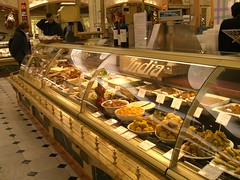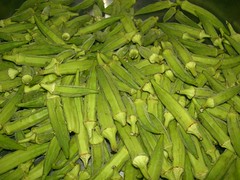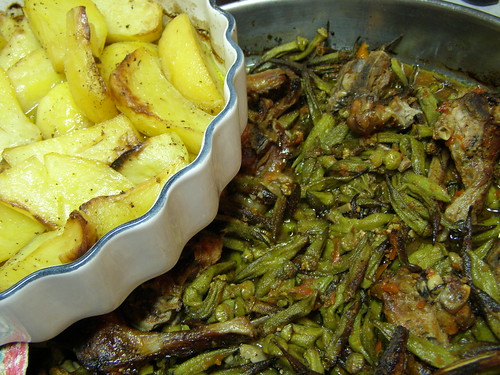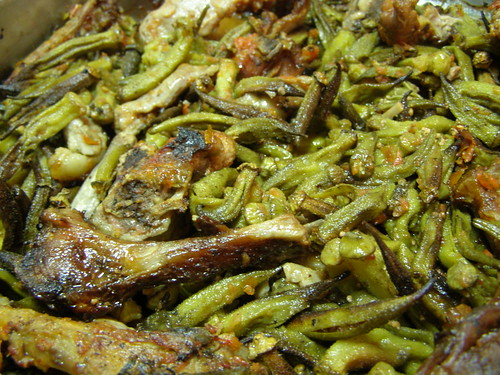When he left the family nest, he didn't realise that he had just eaten his last cooked meal and had left home cooking behind for life. No more Sunday roasts, no more pastitsio, no more T-bone steaks marinated in those Cretan herbs his parents had carried in seed form in their coat pockets on the aeroplane, a reminder of their holidays back to the homeland, to make their way into the lawn of their Wellington garden. It took him a long time to recall those home-brewed smells and tastes because the food he was now eating in London was quite satisfactory: exotic tastes, covered in colourful gloopy sauces, nothing of which resembled his mother's home cooking, but at least it was cheap and edible.
He was now picturing her in the kitchen of the family home, opening the back door to go into the garden. He watched her in his mind, climbing the stairs to enter the raised garden bed. Her first stop would be the greenhouse, a roughly constructed shed made with the old doors and windows of their renovated house. She'd pokes in its undergrowth for any sign of a tomato, maybe a cucumber, or some parsley, being careful not to disturb the overgrown zucchini that was left to seed. Around the greenhouse grew all the horta - weeds to the average Joe Bloggs - which she used for spanakopita fillings and yemista herbs. How he missed those garden fresh salads oozing with the olive oil she drizzled over them from a metal canister.
He once tried to make a Greek salad in his flat at Clapham Junction. While shopping at the ASDA across the road, trying to decide if he should buy the 2-for-the-price-of-1 packaged beef mince or the heat-and-serve meat patties, he came across the fresh produce section and spotted some firm red tomatoes. They looked as though they had just been picked off the tree. He placed a 4-pack in his basket. Everything seemed to be packaged using this number, the magic number for the perfect family, the perfect number of flatmates sharing a house, the perfect number of meal portions: 'serves 4'.
Back at home, as he began to prepare the salad, he noticed that the label on the tomato packet stated that they were grown in the Canary Islands; not that it made a difference to him if they were from Kenya or Spain, but he couldn't picture in his mind where the Canary Islands fell on the map, despite having travelled extensively. It annoyed him that he didn't know where his food came from any more.
The salad was a disaster. There was only sunflower oil in the house, so the dressing didn't even look right. Olive oil had a green tinge to it, not like the sunflower oil on his plate which resembled children's cough medicine. The tomatoes were overly-firm; despite their red exterior, their innards were still green and seedy, and they contained no juice, which is what gives a Greek salad its flavour. Worst of all, they were completely tasteless. He could have been eating unripe apples, such was the sensation in his mouth; the tomato felt like sandpaper. There was not a hint of sun-kissed flesh, the kind of smell a tomato emits as it is sliced. Only the feta cheese seemed to have any decent taste to it. His girlfriend had bought it at a gourmet cheese store at Notting Hill on one of their recent Sunday strolls there. He regretted crumbling it into the salad, and tried to fish out the chunkier pieces so that it would not go to waste. This was one of the reasons he had stopped cooking at home; the whole exercise seemed pointless when the fresh products lacked taste.
It was much more enjoyable to eat out, since he could savour a different culture's cuisine every night of the week at a reasonable price. He now had a list of a dozen of his favorite restaurants and would rotationally frequent each of them on a fortnightly basis. One day it was Chinese, the next Pakistani, the following gourmet hamburgers, and so on. He was spoiled for choice in his dining habits, never ordering the same meal twice.
Now that he was on vacation in Crete, his appetite had swelled. His uncles and aunts always asked him what he would like to eat, and cooked whatever took his fancy. He felt as though he was being doted on, but never said no to a second helping, whether it was oven-roasted meat or aubergine cooked in tomato sauce. Everything tasted like he remembered it in his mother's kitchen. As his aunt Antonia would say: "Eat it now that you've got it in front of you, because you never know when you'll get the chance to try this again."
As he entered his cousin's house (she had invited him for Sunday lunch), memories of his childhood home kept flashing in his mind. She was setting the kitchen table. "Hey, these plates look familiar. I think we had the same ones."
"They were Dad's," she replied, as she opened the oven to check the roast. He noticed that some of the plates were chipped, but he could sense the sentimentality that his cousin felt for them now that her own parents had passed away.
A familiar scent caught his nose. His cousin had lived across the street from him in Wellington, and both their mothers cooked roughly the same kind of food. He was sure of it, but could not see any pots simmering on the stove.
"Are you cooking bamies?"
"Yeah, but don't worry," she began to explain, "I've made plenty of roast potatoes if you don't like them."
"No!!!" he shook his head wildly. "I love bamies! Mum cooks them with chicken."
"Oh, I remember," she said, like the expert cook her mother was. She was beginning to look like her now, short and bulky in a matronly way, busying her way deftly around her kitchen, bringing out the cutlery, glasses and paper napkins to lay the table. This was what eating was like in his family home, a ritual associated with the appropriate equipment, with every item taking its place ceremoniously on the dining room table. He could not recall the last time he saw a table in London high enough to sit at on a chair, or large enough to seat a family. Although he had been working for many years in London, he still could not afford to rent a flat of his own. He and most of his acquaintances lived in digs, tiny bedsits barely large enough to house a bed and chair, if a writing desk could be fitted in somewhere, then the room was considered 'large'. Apart from the usual arguments over the phone bill and the cleaning arrangements, cooking a meal in the communal kitchen also created feelings of distrust: should it be shared? if so, how much money should each flatter fork out to cover the meal? who cleans up afterwards? does the meal cater for everyone's taste, needs, idiosyncracies? low-calorie, carb-free, kosher, gluten-free, vegetarian, vegan, environmentally friendly, politically correct?
"Bamies from a tin, right?" she asked.
He looked at her somewhat confused. "Yeah... canned in tomato sauce."
She started laughing. "I couldn't understand how our parents even liked the stuff, it all came out like goo."
"But you used to eat it, too, didn't you?" She ate everything, and it showed.
"Yes, I did," she replied regretfully. "But now I know how much they missed the real thing. Now that we eat them here fresh. They grow on gigantic tree-like shrubs and they're covered in prickly fur, so they aren't easy to pick."
"You picked these yourself?"
"No, I bought them at a fresh produce market in the Agora. But I've seen the trees. Okra looks fresh when the pod is firm and bright green. You have to shave them a little on the top and let them dry in the sun for a couple of days so that they don't turn into goo..."
He had no idea what she was talking about now. The discussion about food was getting too technical. He couldn't remember if he had ever seen fresh okra on sale at the supermarket. He made a mental note of going to Brixton market when he got back to London to see if he could find them. Not that he was planning to buy them himself; for a start, where was he going to find any sunlight in London to let them dry? When he left Gatwick airport, it was pouring heavily and the temperature was 14 degrees Celsius: all this is mid-August.
"... we like them in a lamb roast with potatoes," she was still talking. "They go crispy, like french fries, but with a meaty taste, kind of like that jerky meat Australians like to eat. We never eat them mushy, and I don't think our parents ate them mushy when they cooked them here in Crete. They just weren't available fresh in New Zealand. They're kind of an acquired taste."
An acquired taste. What Londoners would say of potted shrimp pate, boar terrine layered with chestnuts, olive oil infused with black truffles, whisky-flavoured seville marmalade. When asked to give their opinion of okra, most wouldn't know what it was, let alone have tasted it. If they were shown what it was in a photo, they might think of it as a 'native's' choice of vegetable, associated with a community whose skin was dark. They probably couldn't place it in any of the mongrelised versions of international dishes in the average Londoner's repertoire.
Roast okra - made all the more delectable with garden fresh tomato pulp and virgin olive oil. He had one serving, with tender-cooked lamb and roast skin-blackened potatoes. The okra was firm, chewy and juicy. His cousin asked him if he would like a second helping, which he obliged to. Then she asked if anyone wanted the last scrapings off the tin. He took those too. Like his aunt, he wondered when he would get another chance to savour a meal like this one.
This is my entry for Weekend Herb Blogging, this week hosted by Katie from Thyme for Cooking.
(Dedicated to PH, who licked the tin clean)
©All Rights Reserved/Organically cooked. No part of this blog may be reproduced and/or copied by any means without prior consent from Maria Verivaki.







"He was lucky to have such a clever cousin." Not that he'd ever do such a thing, but you can oven-dry okra at low temperature if you happen to live in a climate without much sun.
ReplyDeleteLeaving next Sunday. Can't wait to make bamies. What else do you mix in this oven version besides tomatoes and lamb? Onions?
What a wonderful story! I've never seen fresh okra and would have had no idea what to do with it. Now, if I ever do see it....
ReplyDeleteLove this story!
ReplyDeleteWhen I was a little girl, I used to grow okra in our garden. We often planted so much that I would take the excess and sell it to the farmer's market. We never dried it. I wish I had space for a bigger garden now so I could try that. I never see it where we live now, either.
your lovely story makes me think that in a supermarket culture farmers' markets are treasures in the city. Here in NC, at the northern border of the south, we see fresh okra in the farmers market.. and somehow less fresh in the supermarkets too.
ReplyDeleteThanks for your visit to my site, and to answer your question: Yes, we can collect shells, as many as we want, as long as they are not live ones.
ReplyDeleteWow, this really points out what we take for granted- it had never occurred to me that some people may not have heard of okra! It's a staple of Southern U.S. cooking- we use it in gumbo, and we stew it, but I like it best fried. Just the other day I was at a cocktail party and some of us started waxing rhapsodic about fried okra.
ReplyDeleteOnce again you've given me something to think about, opened my eyes :)
Living in Canada okra is not something I have ever seen growing or even in a can for that matter....deprived again:D
ReplyDeleteOh, I haven't had okra in years! That last photo with the lamb made me want to reach through the screen and eat it! Oh, and even if the salad is good, I love to pick out the feta and eat it by itself! YUM!
ReplyDeleteNice article! In Egypt okra - or bamya - are widely used and in rural areas they are strung on string and hung in the sun to dry and then store for future use. As you say, this gets rid of the gooeiness. It also imparts a lovely tangy flavor.
ReplyDeleteAkcherly... most Londoners would know okra. Eating out in Indian restaurants is very common, and most restaurants offer okra curry as a vegetable side dish. It's known as bindi or ladies' fingers over here.
ReplyDeleteyes, they do know okra, and i saw some wonderful looking fresh okra on sale at fresh markets in lewisham while i was last there
Deletewe also had them in an indian restaurant
but the greek way of cooking okra is quite different from the asian way to cook them (they were chopped small there, and rather slimy!) which makes this dish very precious for the greek in london who misses his mum;s cooking!